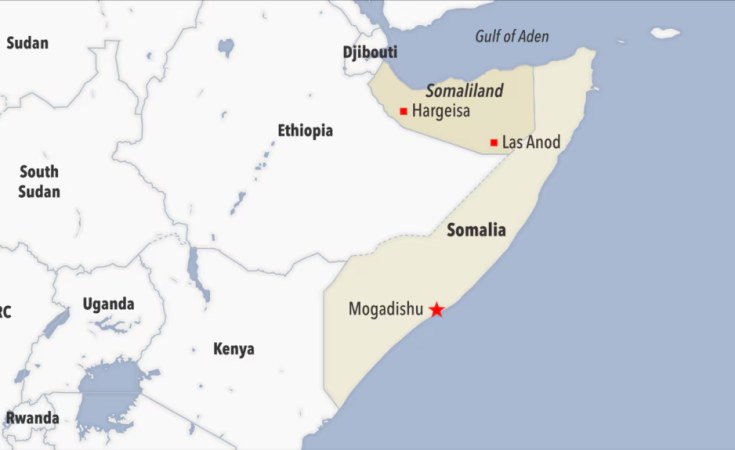Djibouti's Foreign Minister Mahmoud Ali Youssouf says his country has a proposal that could solve the dispute between Somalia and Ethiopia.
In an interview with VOA's Horn of Africa Service, Youssouf said his country has offered to give Ethiopia access to the port of Tadjoura, about 100 kilometers (62 miles) from the border with Ethiopia.
He said Djibouti and other countries such as Turkey have been trying to solve the dispute between Somalia and Ethiopia, which ignited at the beginning of this year when Ethiopia signed a Memorandum of Understanding (MOU) with the breakaway region of Somaliland, a deal Somalia sees as an infringement to its sovereignty.
Under the deal, Somaliland would lease 20 kilometers (12 miles) of shoreline to Ethiopia in return for recognition, according to Somaliland officials.
Ethiopia already relies on Djibouti's main port to import most of its goods, using four different terminals, said Youssouf, who is a candidate for the African Union Commission chairperson.
"Djibouti is even ready to hand over a new port, a brand-new port that has been built, a brand-new corridor to the northern border of Djibouti, that corridor will be very helpful to Ethiopia, at least to decrease the cost of transport," he said.
"Djibouti is even ready to consider a mix-management of the port with Ethiopia," he added.
After no agreement was reached following two rounds of talks in Turkey, Ethiopia's Minister of Foreign Affairs Taye Atske Selassie said he is a confident that "Ethiopia's legitimate interests to secure dependable access to and from the sea will be fulfilled peacefully in cooperation with our neighbors."
Somalia is willing to accept giving commercial sea access to Ethiopia but rules out any naval base, said Somalia's President Hassan Sheikh Mohamud.
"If Ethiopia wants access to Somalia sea, we welcome it. But we want Ethiopia to have access the same way that Uganda has access to Kenya sea, the same way that Burundi and Rwanda have access to Tanzania sea ... and the same way Ethiopia has access to Djibouti sea," he said.
"We are not accepting anything beyond that," he added.
Youssouf said Djibouti put the port proposal on the table a month ago and informed Ethiopian leaders, who responded.
"The response we get is a positive one, so they are considering the technicalities of it, so we will certainly in a few days' time or in [a] few weeks, sit down again and put the final adjustments to the formula and see how we can help," he said.
Djibouti is a small Horn of Africa country in a strategic maritime location. It hosts military bases for France, the United States, Italy, Japan and China. Youssouf said his country hosts these five militaries because it is neutral and because the maritime route between the Red Sea and Gulf of Aden faces threats from militants, Houthis and, sometimes, piracy.
"The presence of those naval bases in Djibouti is first and foremost to protect, you know, and guarantees the safety of navigation in the Strait of Bab el-Mandeb," he said.
Asked if Djibouti's offer includes a naval base for Ethiopia, Youssouf said, "No."
"I mean it's [a] small country, which is already crowded, so we have even turned down from other countries -- India, Russia, and we told them that it's a very small place, so we don't want to create any friction, any tension between those who are already present," he said.
"We need to keep [a] conducive environment for those who are already present to protect the strait of Bab el-Mandeb and fight all kind[s] of illegal acts."
Youssouf said Djibouti's proposal is based on a plan to restore the "good relationship" that used to exist between Ethiopia and Somalia.
The foreign ministries of Somalia and Ethiopia did not immediately respond to VOA requests for comment.


